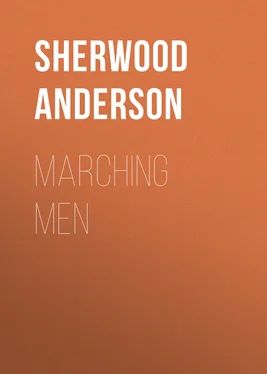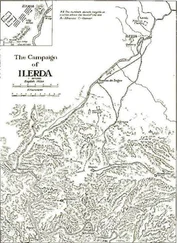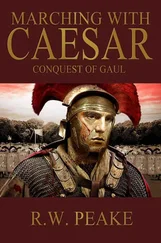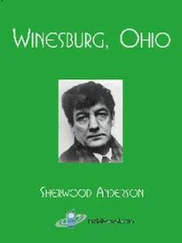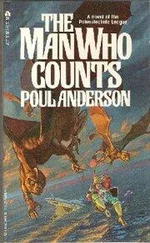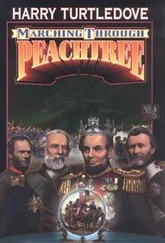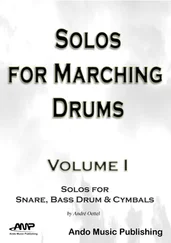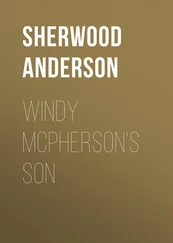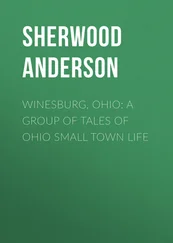Sherwood Anderson - Marching Men
Здесь есть возможность читать онлайн «Sherwood Anderson - Marching Men» — ознакомительный отрывок электронной книги совершенно бесплатно, а после прочтения отрывка купить полную версию. В некоторых случаях можно слушать аудио, скачать через торрент в формате fb2 и присутствует краткое содержание. Жанр: foreign_prose, literature_20, foreign_antique, на английском языке. Описание произведения, (предисловие) а так же отзывы посетителей доступны на портале библиотеки ЛибКат.
- Название:Marching Men
- Автор:
- Жанр:
- Год:неизвестен
- ISBN:нет данных
- Рейтинг книги:5 / 5. Голосов: 1
-
Избранное:Добавить в избранное
- Отзывы:
-
Ваша оценка:
- 100
- 1
- 2
- 3
- 4
- 5
Marching Men: краткое содержание, описание и аннотация
Предлагаем к чтению аннотацию, описание, краткое содержание или предисловие (зависит от того, что написал сам автор книги «Marching Men»). Если вы не нашли необходимую информацию о книге — напишите в комментариях, мы постараемся отыскать её.
Marching Men — читать онлайн ознакомительный отрывок
Ниже представлен текст книги, разбитый по страницам. Система сохранения места последней прочитанной страницы, позволяет с удобством читать онлайн бесплатно книгу «Marching Men», без необходимости каждый раз заново искать на чём Вы остановились. Поставьте закладку, и сможете в любой момент перейти на страницу, на которой закончили чтение.
Интервал:
Закладка:
The door of the mine opened and three men came out, staggering as they pushed before them a small car that ran upon rails. On the car lay three other men, silent and motionless. A woman thinly clad and with great cave-like hollows in her face climbed the embankment and sat upon the ground below the boy and his mother. “The fire is in the old McCrary cut,” she said, her voice quivering, a dumb hopeless look in her eyes. “They can’t get through to close the doors. My man Ike is in there.” She put down her head and sat weeping. The boy knew the woman. She was a neighbour who lived in an unpainted house on the hillside. In the yard in front of her house a swarm of children played among the stones. Her husband, a great hulking fellow, got drunk and when he came home kicked his wife. The boy had heard her screaming at night.
Suddenly in the growing crowd of miners below the embankment Beaut McGregor saw his father moving restlessly about. On his head he had his cap with the miner’s lamp lighted. He went from group to group among the people, his head hanging to one side. The boy looked at him intently. He was reminded of the October day on the eminence overlooking the fruitful valley and again he thought of his father as a man inspired, going through a kind of ceremony. The tall miner rubbed his hands up and down his legs, he peered into the faces of the silent men standing about, his lips moved and his red beard danced up and down.
As the boy looked a change came over the face of Cracked McGregor. He ran to the foot of the embankment and looked up. In his eyes was the look of a perplexed animal. The wife bent down and began to talk to the weeping woman on the ground, trying to comfort her. She did not see her husband and the boy and man stood in silence looking into each other’s eyes.
Then the puzzled look went out of the father’s face. He turned and running along with his head rolling about reached the closed door of the mine. A man, who wore a white collar and had a cigar stuck in the corner of his mouth, put out his hand.
“Stop! Wait!” he shouted. Pushing the man aside with his powerful arm the runner pulled open the door of the mine and disappeared down the runway.
A hubbub arose. The man in the white collar took the cigar from his mouth and began to swear violently. The boy stood on the embankment and saw his mother running toward the runway of the mine. A miner gripped her by the arm and led her back up the face of the embankment. In the crowd a woman’s voice shouted, “It’s Cracked McGregor gone to close the door to the McCrary cut.”
The man with the white collar glared about as he chewed the end of his cigar. “He’s gone crazy,” he shouted, again closing the door to the mine.
Cracked McGregor died in the mine, almost within reach of the door to the old cut where the fire burned. With him died all but five of the imprisoned miners. All day parties of men tried to get down into the mine. Below in the hidden passages under their own homes the scurrying miners died like rats in a burning barn while their wives, with shawls over their heads, sat silently weeping on the railroad embankment. In the evening the boy and his mother went up the hill alone. From the houses scattered over the hill came the sound of women weeping.
For several years after the mine disaster the McGregors, mother and son, lived in the house on the hillside. The woman went each morning to the offices of the mine where she washed windows and scrubbed floors. The position was a sort of recognition on the part of the mine officials of the heroism of Cracked McGregor.
Nance McGregor was a small blue-eyed woman with a sharp nose. She wore glasses and had the name in Coal Creek of being quick and sharp. She did not stand by the fence to talk with the wives of other miners but sat in her house and sewed or read aloud to her son. She subscribed for a magazine and had bound copies of it standing upon shelves in the room where she and the boy ate breakfast in the early morning. Before the death of her husband she had maintained a habit of silence in her house but after his death she expanded, and, with her red-haired son, discussed freely every phase of their narrow lives. As he grew older the boy began to believe that she like the miners had kept hidden under her silence a secret fear of his father. Certain things she said of her life encouraged the thought.
Norman McGregor grew into a tall broad-shouldered boy with strong arms, flaming red hair and a habit of sudden and violent fits of temper. There was something about him that held the attention. As he grew older and was renamed by Uncle Charlie Wheeler he began going about looking for trouble. When the boys called him “Beaut” he knocked them down. When men shouted the name after him on the street he followed them with black looks. It became a point of honour with him to resent the name. He connected it with the town’s unfairness to Cracked McGregor.
In the house on the hillside the boy and his mother lived together happily. In the early morning they went down the hill and across the tracks to the offices of the mine. From the offices the boy went up the hill on the farther side of the valley and sat upon the schoolhouse steps or wandered in the streets waiting for the day in school to begin. In the evening mother and son sat upon the steps at the front of their home and watched the glare of the coke ovens on the sky and the lights of the swiftly-running passenger trains, roaring whistling and disappearing into the night.
Nance McGregor talked to her son of the big world outside the valley and told him of the cities, the seas and the strange lands and peoples beyond the seas. “We have dug in the ground like rats,” she said, “I and my people and your father and his people. With you it will be different. You will get out of here to other places and other work.” She grew indignant thinking of the life in the town. “We are stuck down here amid dirt, living in it, breathing it,” she complained. “Sixty men died in that hole in the ground and then the mine started again with new men. We stay here year after year digging coal to burn in engines that take other people across the seas and into the West.”
When the son was a tall strong boy of fourteen Nance McGregor bought the bakery and to buy it took the money saved by Cracked McGregor. With it he had planned to buy a farm in the valley beyond the hill. Dollar by dollar it had been put away by the miner who dreamed of life in his own fields.
In the bakery the boy worked and learned to make bread. Kneading the dough his arms and hands grew as strong as a bear’s. He hated the work, he hated Coal Creek and dreamed of life in the city and of the part he should play there. Among the young men he began to make here and there a friend. Like his father he attracted attention. Women looked at him, laughed at his big frame and strong homely features and looked again. When they spoke to him in the bakery or on the street he spoke back fearlessly and looked them in the eyes. Young girls in the school walked home down the hill with other boys and at night dreamed of Beaut McGregor. When some one spoke ill of him they answered defending and praising him. Like his father he was a marked man in the town of Coal Creek.
CHAPTER II
One Sunday afternoon three boys sat on a log on the side of the hill that looked down into Coal Creek. From where they sat they could see the workers of the night shift idling in the sun on Main Street. From the coke ovens a thin line of smoke rose into the sky. A freight train heavily loaded crept round the hill at the end of the valley. It was spring and over even that hive of black industry hung a faint promise of beauty. The boys talked of the life of people in their town and as they talked thought each of himself.
Читать дальшеИнтервал:
Закладка:
Похожие книги на «Marching Men»
Представляем Вашему вниманию похожие книги на «Marching Men» списком для выбора. Мы отобрали схожую по названию и смыслу литературу в надежде предоставить читателям больше вариантов отыскать новые, интересные, ещё непрочитанные произведения.
Обсуждение, отзывы о книге «Marching Men» и просто собственные мнения читателей. Оставьте ваши комментарии, напишите, что Вы думаете о произведении, его смысле или главных героях. Укажите что конкретно понравилось, а что нет, и почему Вы так считаете.
